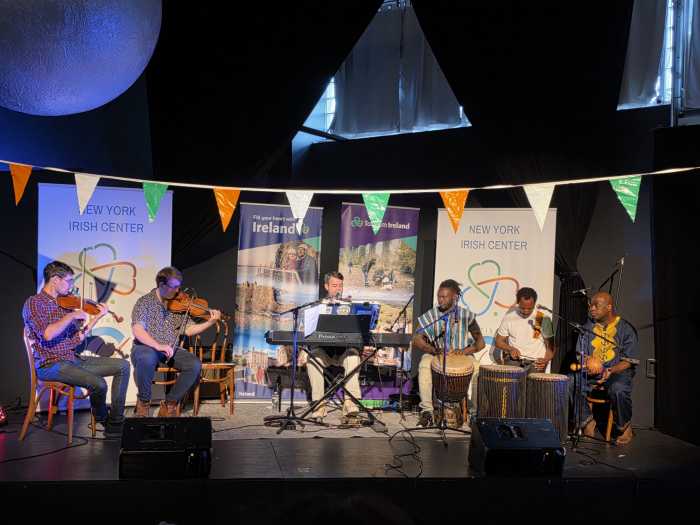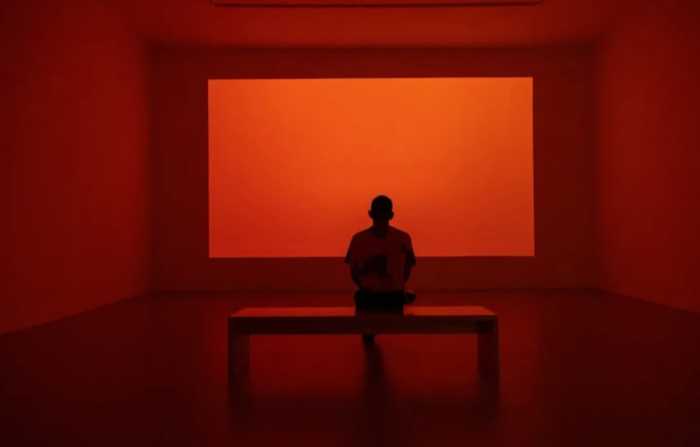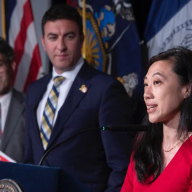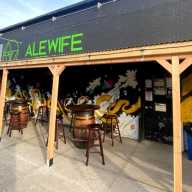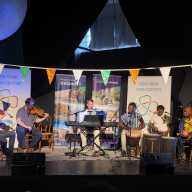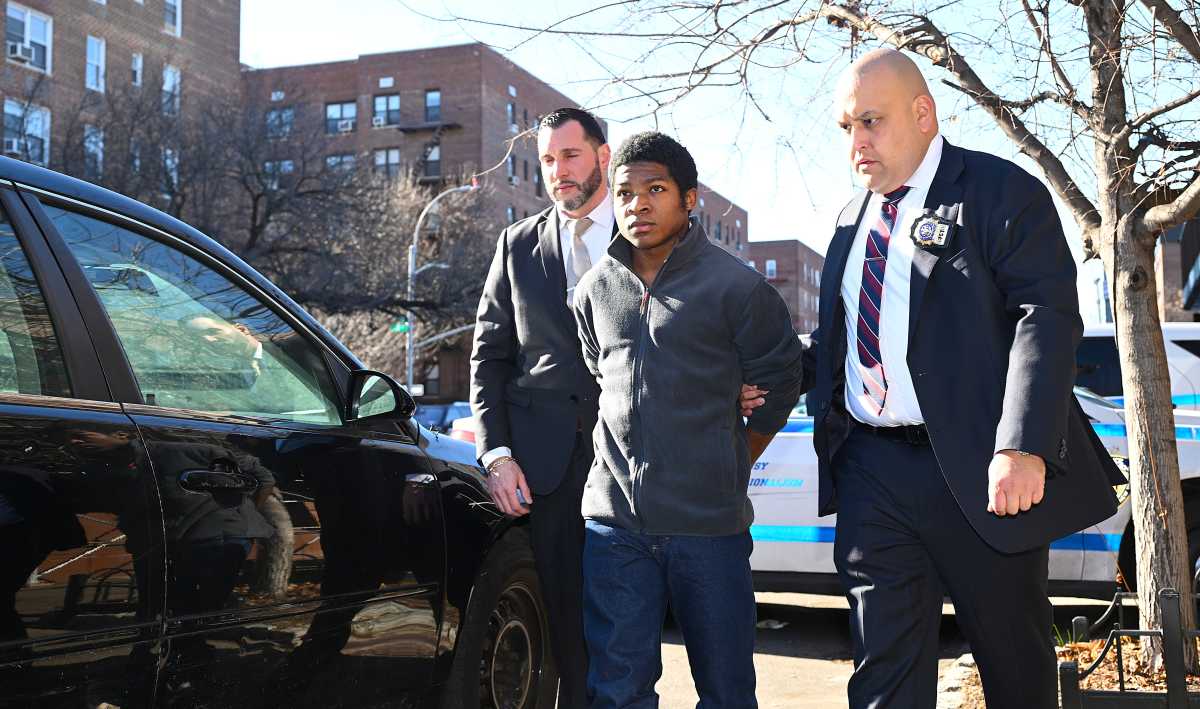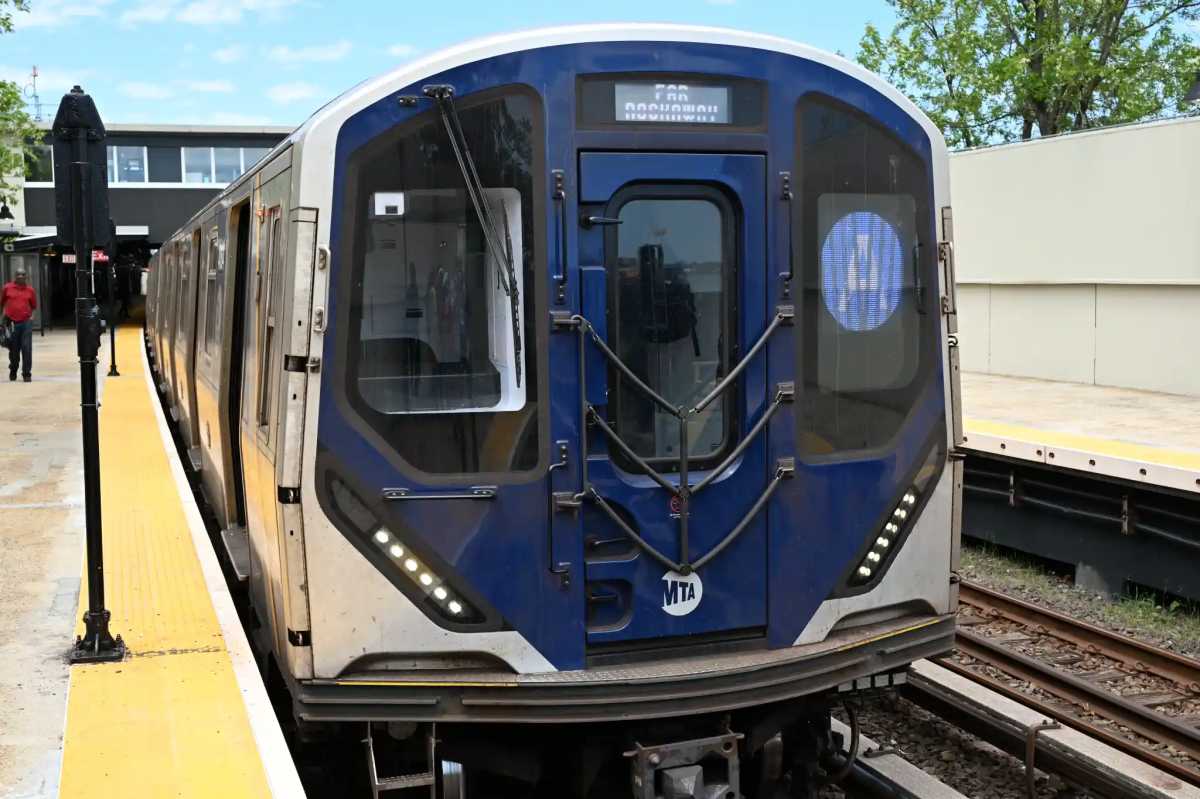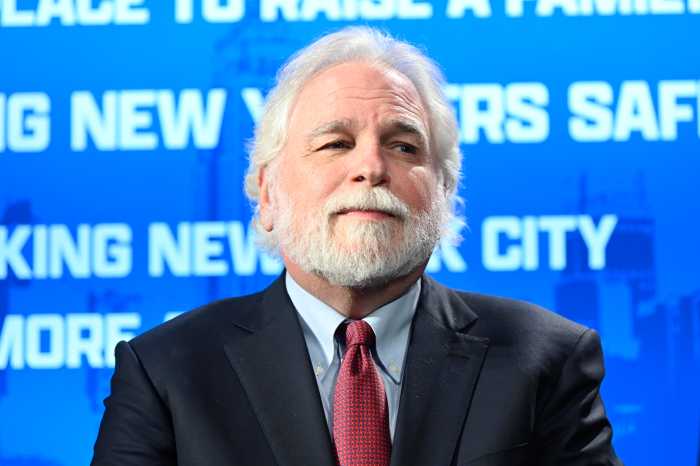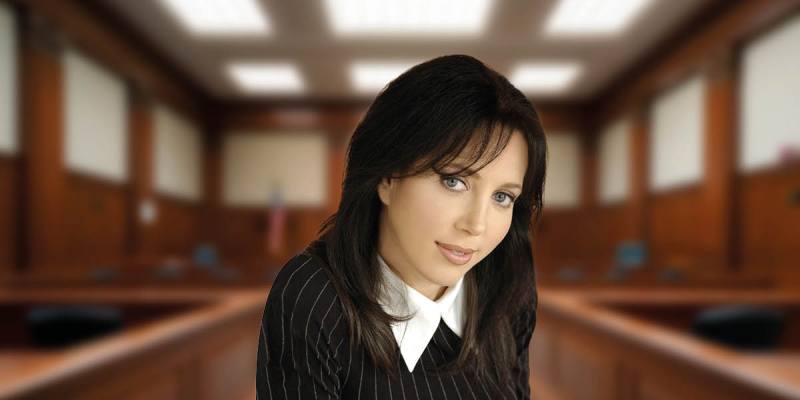By Merle Exit
Chinese-born and Queens-based artist Zhang Hongtu has developed a unique artistic bent on his homeland’s late leader, Chairman Mao Zedong.
In his “Long Live Chairman Mao” series, part of Hongtu’s exhibition at the Queens Museum through Feb. 28, the chairman appears in several paintings in which he sports, among other things, a Stalin mustache, pigtails and even tiger stripes across his face.
Hongtu, who left China in 1982 to seek artistic freedom, presents Mao as appearing everywhere, and as a negative form, appearing nowhere at all.
One of those negative spaces is a standard pingpong table with Mao’s silhouette cut into the playing areas on both sides of the net.
And while museums usually frown on visitors touching items on display, at the Jan. 17, Ping-Pong Mao Tournament players will use Hongtu’s piece as their arena.
As planned, the tournament will consist of round-robin play starting with 16 contestants. The winner of each 10-minute round moves on.
The final match will be a best of three games.
Queens resident and USA Table Tennis Hall of Fame inductee Tahl Leibovitz will serve as master of ceremonies of the tourney.
He qualified for the 2016 Paralympics in Rio by winning a Gold Medal in Class 9 men’s singles table tennis in Toronto.
Leibovitz has osteochondroma, a condition characterized by noncancerous but often painful bone tumors.
He had a troubled home life when he was a kid and sometimes slept in the New York City subway system when he was homeless for a time during his teenage years, as he has documented in his book “Ping Pong for Fighters.”
He has overcome these obstacles to obtain a master’s degree in Urban Affairs from Queens College and a master’s in Clinical Social Work from New York University’s Silver School of Social Work.
He will soon take the exam to be a licensed master social worker with the goal of working with underserved populations, including veterans, addicts and homeless people.
For Leibovitz, pingpong is not simply a recreational table in one’s basement.
“Ping-Pong has become more popular in the U.S. thanks to Gordon Kaye, the present USATT CEO,” Leibovitz said. “One of the best places to practice is the New York Table Tennis Club, located at 45-19 162nd St. in Flushing, where there is a quite a diversity of ethnicity.”
To sign up, e-mail predd


